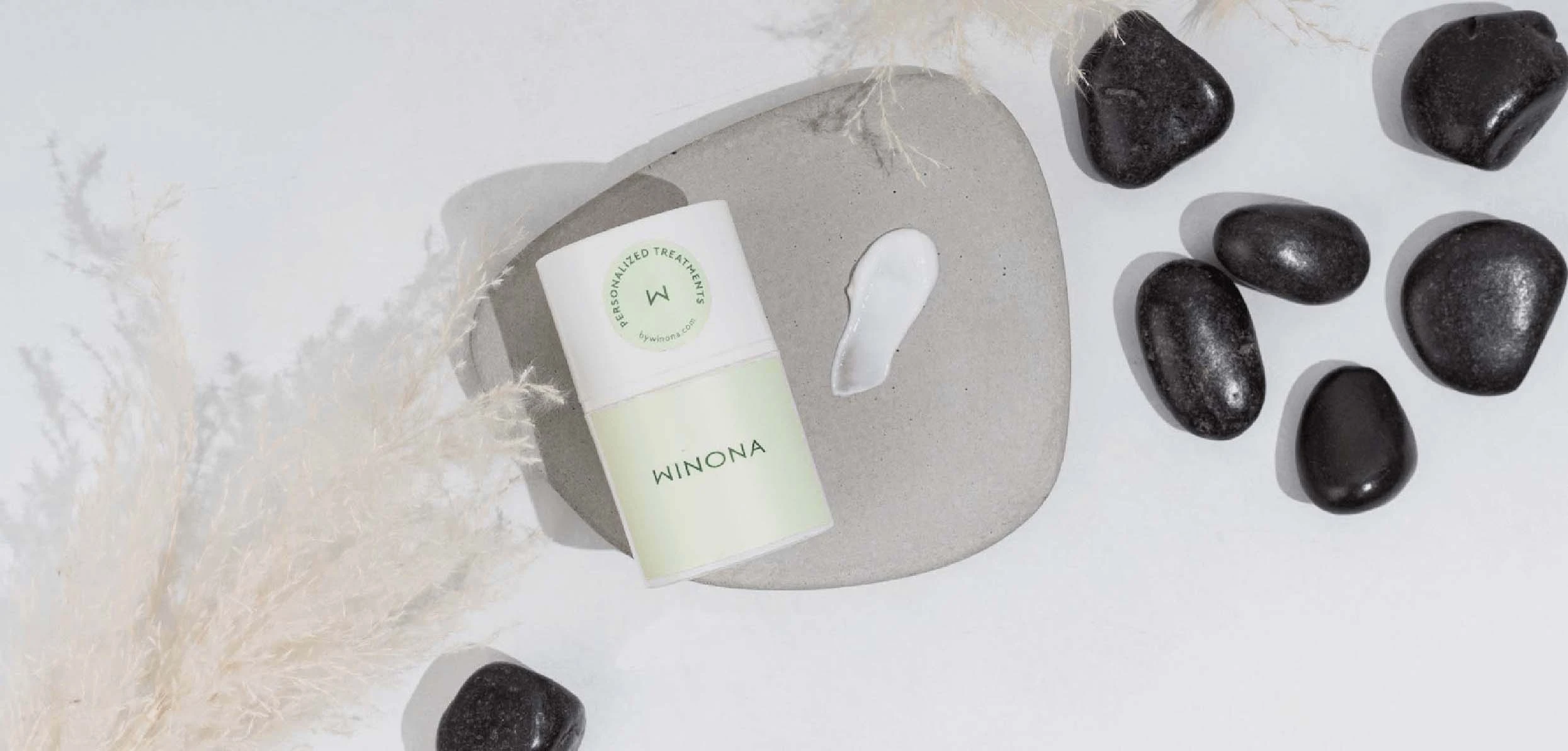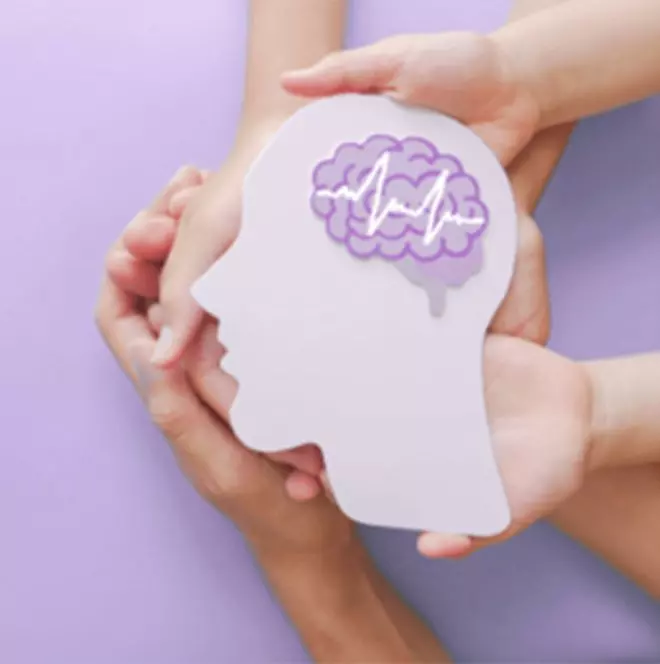
Progestin Hormone
Progesterone hormones are made naturally by your body and are commonly associated with fertility, menstruation, and contraception. Progestins are the synthetic form of progesterone that is used mostly for contraception. Although these synthetic progestins can be used in Hormone replacement therapy (HRT), bioidentical progesterone is a better choice. When taking HRT progesterone it is offered in a bioidentical micronized (smaller particle) form that allows it to be absorbed easier. It also lasts longer in your body than synthetic progestins, or synthetic progesterone, which have a different chemical structure. Progesterone hormones that are used in HRT for progesterone treatment are bioidentical to what your body uses and can relieve symptoms of aging and menopause. Progesterone medication is often combined with estrogen treatment for women experiencing symptoms such as hot flashes or vaginal dryness and can prevent the endometrium from building up and becoming cancerous.1
Progesterone levels normally drop before menopause and are a major cause of symptoms experienced around menopause.2,3 HRT is a great option if you prefer a more natural hormone that is created from plant products. Bioidentical progesterone is like the progesterone your own body produces.
Progesterone Functions
Progesterone’s name comes from “pro” and “gestational” – meaning promoting the process of carrying a fetus in the womb from conception to birth. In other words, progesterone’s job is to promote successful pregnancy. Progesterone also plays a critical role in the regulation of the menstrual cycle, signaling when a pregnancy has not occurred, and the initiation of menses. Most people know progesterone for its role in female fertility and reproduction, but both women and men produce it. When levels of progesterone are low there are many health problems for both sexes that can occur.4-6 For many women, PRT (progesterone replacement therapy) is given alongside estrogen replacement. The combination of estrogen and progesterone therapy can help with symptoms such as depression, anxiety, and weight gain. If you only take estrogen and not progesterone, the estrogen-alone can cause the lining of your uterus to thicken. This in turn may raise the risk of uterine cancer. However, taking progesterone alongside estrogen as part of an overall HRT treatment plan can reverse the risk and be protective.4-9 Progesterone is a hormone that deserves to be noticed outside of its role with estrogen. Estrogen and progesterone do not have to be prescribed together. Some believe that progesterone should only be prescribed together with estrogen and only if a woman still has her uterus. However, the protective benefits of progesterone are realized throughout the entire body, and not just the uterus. Progestogens have relatively few side effects at typical dosages.
Feel like yourself again.

The Benefits of Progesterone Replacement
Progesterone works with estrogen to improve your health and help you feel better in several different ways. It can help relieve hot flashes, “brain fog,” irregular or heavy periods, a dry vagina, mood swings, and many other symptoms of perimenopause, menopause, and other conditions that cause hormone deficiency.
While hot flashes, night sweats, and vaginal dryness are the most symptoms of menopause, a hidden concern is osteoporosis. Osteoporosis is a decrease in bone density compared to similar age individuals. This loss of bone mass can result in increased fractures, loss of height, pain in the hips and back, and spinal curvature. While it might not seem threatening, the effects can be crippling and debilitating if preventive measures are not taken early. Good nutrition and exercise are important in the prevention and treatment of osteoporosis. Hormonal therapy is also very beneficial. Osteoporosis is not only preventable, but it is also reversible in many cases.
Another issue that some women face as they age is facial hair. Especially above the lip. This has a great name “hirsutism” or excessive growth of facial and body hair. If you are noticing this, it is an indication that there is a hormonal imbalance between the three major hormones estrogen, progesterone, and testosterone. Progesterone treatment can help to regulate the other hormones.
Progesterone has been given a bad reputation from some very outdated research. You can use progesterone if there is a family history of breast or uterine cancer. It may even be recommended. Some experts feel that progesterone can have a beneficial effect in preventing ovary, breast, colon, and uterine cancers. Progesterone can improve brain function, can diminish muscular aches and pains, improves skin problems including acne, seborrhea, rosacea, psoriasis, and kaurosis. It also can improve sleep and libido.5
Progesterone Therapy Use in Women
Once a woman hits her mid to late ’30s, progesterone production starts to decline and perimenopause begins. When she reaches menopause, circulating progesterone levels are so low that they are similar to levels seen in men. Research shows that progesterone supplementation can improve brain function as well as breast, cardiovascular, and nervous system health and decrease the risk of uterine cancer. Progesterone acts as a natural antidepressant and can enhance your mood and relieve anxiety. It actually stimulates the brain’s ‘feel-good,’ center. Progesterone nicknames include ‘miracle hormone,’ ‘the great sedator,’ and ‘happy cream.’ So it makes sense then that when progesterone levels drop with menopause, anxiety can become a major menopause symptom.9 While there are many causes of anxiety – your kids, your job, or something else – progesterone hormone deficiency is the main factor leading to moodiness, brain fog, and depression during menopause. Researchers have shown that progesterone appears to be the most potent anti-anxiety hormone for menopausal women.16-18
During menopause, many people describe a fogginess in their thinking, and memory problems. Progesterone may protect against cognitive decline if HRT starts early in the menopause process. Specifically, progesterone improved visual and verbal memory for people in menopause.16 Progesterone also helps with the sleep problems so often associated with menopause. After hot flashes, the next most troublesome symptom of menopause is delayed or interrupted sleep. Researchers found that taking progesterone at bedtime improved the quality of deep sleep. Not only will it make you sleepy, but progesterone can reduce the severity of night sweats, which can awaken women from an otherwise sound sleep.16-18
Summary of Benefits of Progesterone Supplementation (as related to women 40+):
Eases anxiety, stress, and has a calming effect on both the mind and the body.
Improves mood. Depleted progesterone can cause mood swings and depression.
Promotes memory. Progesterone stimulates brain processes and the nervous system.
Enhances sleep. Take before bed to help resume normal sleep cycles; it has a sedative effect.
Helps regulate estrogen. If progesterone levels are low, this can throw off estrogen too.
Helps Prevent Diabetes. Progesterone and estrogen work together to balance the release of insulin and if thrown off you can have an increased risk for Insulin Resistance or Diabetes.
Protects from Cancer: Progesterone can help protect against breast and uterine cancers.
Reduces weight gain and helps the metabolism by contributing to the use of fat for energy.
Prevents Heart Disease. Progesterone assists in preventing plaque from forming on arterial walls.
Bone formation. Essential for bone growth and loss of Calcium.
Thyroid Gland. Assists in the proper function of the thyroid gland.
Anti-Aging. Can help to slow down the aging process.
Improves libido/ sex drive
Reduces migraines
Reduces inflammation and joint pain
Age beautifully. Goodbye getting old.

Types of Progesterone Agents
When using progesterone for birth control you will most often see it combined with estrogen. There are many ways your physician may have prescribed progestin for hormonal birth control including pills, patches, injections, implants, and IUDs.7,8
When using progesterone for anti-aging and menopausal symptoms you will be prescribed bioidentical progesterone hormones. This bioidentical hormone replacement therapy (HRT), used to treat aging and menopausal symptoms, is most commonly provided as oral tablets, transdermal patches, and creams. Based on your symptoms, you may require more progesterone to help alleviate your symptoms, while others will use less. Ask your Winona provider which form is best for you.
Use of Progestational in Medicine
While progestin is used in birth control, it can be used for the treatment of dysfunctional uterine bleeding or issues with your menstrual cycle. If you are still in your reproductive years, and if your progesterone levels are too low, irregular and heavy menstrual bleeding can occur. Low progesterone can mean the ovary has failed to release an egg at ovulation, or maybe a woman has polycystic ovary syndrome. By the time you have moved into your late 30s and 40s, progesterone has naturally dropped significantly. Low progesterone in women can cause symptoms like:
Here are some signs that you might have low progesterone:
Depression, anxiety, or mood swings
Water retention
Abdominal pain
Hot Flashes
Cravings for sweets
Weight gain
Vaginal dryness and infections
UTIs
Low Libido, loss of sex drive
Low blood sugar
Headaches or migraines
Gallbladder problems
Breast swelling and tenderness
It’s important to get treatment for low progesterone early since a lack of it could cause your bones to become more brittle or raise the risk of some types of cancer. Bioidentical hormones and HRT can provide you with many positive benefits as you age, including a better mood, fewer hot flashes, and a lower risk of Alzheimer’s disease.4
Summary:
Progesterone hormones can be made in the lab and called Progestin, which is commonly associated with contraception. Although these synthetic progestins can also be used in Hormone replacement therapy (HRT), Winona doesn’t prescribe Progestin. Taking progesterone for HRT is the safer bioidentical micronized (smaller particle) form which allows it to be absorbed easier and last longer.
There are many benefits of progesterone replacement therapy. Most of the symptoms you are likely experiencing can be tamed with bioidentical progesterone and estrogen therapy. Bioidenticals are natural hormones that are created from plant products that mimic the progesterone and estrogen your body used to produce. With hormone therapy that increases the levels of estrogen and progesterone in your body, you can start feeling better in just a few weeks.
Our patient intake form is easy and not the least bit embarrassing. With Winona, you won’t experience an uncomfortable conversation with your doctor and you can finally put behind you years of discomfort and unhappiness.
We are happy to talk to you about the options available for bioidentical hormone replacement therapy and other menopause treatments. Your health and comfort are our top priority, and we want to work with you to create a health plan you are comfortable with. Make an appointment online today to have your hormone levels tested and discuss your symptoms with our medical team at
Visit Winona for your online health assessment today.
“This article is for informational purposes only and does not constitute medical advice. The information contained herein is not a substitute for professional medical advice. Always talk to your doctor about the risks and benefits of any treatment.”
References:
https://www.hormone.org/your-health-and-hormones/glands-and-hormones-a-to-z/hormones/progesterone
https://www.medicalnewstoday.com/articles/277737#what-does-progesterone-do
https://www.medicinenet.com/breast_cancer_and_young_women_pictures_slideshow/article.htm
https://www.pbs.org/wgbh/americanexperience/features/pill-development-synthetic-hormones/
Hormone therapy for reproductive depression in women. Post Reprod Health. 2014 Dec20(4):132-7. DOI: 10.1177/2053369114557883. Epub 2014 Nov 14.
Doty RL, Tourbier I, Ng V, et al; Influences of hormone replacement therapy on olfactory and cognitive function in postmenopausal women. Neurobiol Aging. 2015 Jun36(6):2053-9. DOI: 10.1016/j.neurobiolaging.2015.02.028. Epub 2015 Mar 10.
Schierbeck L; Primary prevention of cardiovascular disease with hormone replacement therapy. Climacteric. 201518(4):492-7. DOI: 10.3109/13697137.2015.1034098. Epub 2015 Apr 16.
Morch LS, Lidegaard O, Keiding N, et al; The influence of hormone therapies on colon and rectal cancer. Eur J Epidemiol. 2016 Jan
https://www.healthline.com/health/progesterone-for-menopause#bottom-line
https://www.hormone.org/your-health-and-hormones/glands-and-hormones-a-to-z/hormones/progesterone
https://www.healthywomen.org/your-health/progesterone/facts-to-know
https://www.hotzehwc.com/2018/04/anxiety-relief-with-bioidentical-progesterone/
https://plattwellness.com/blogs/news/3-benefits-of-progesterone-for-anti-aging



